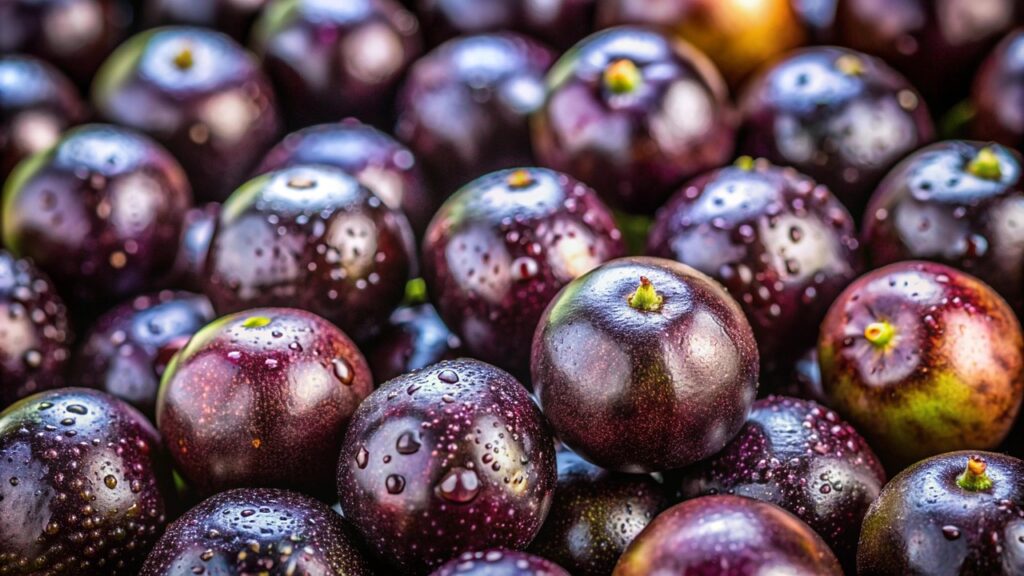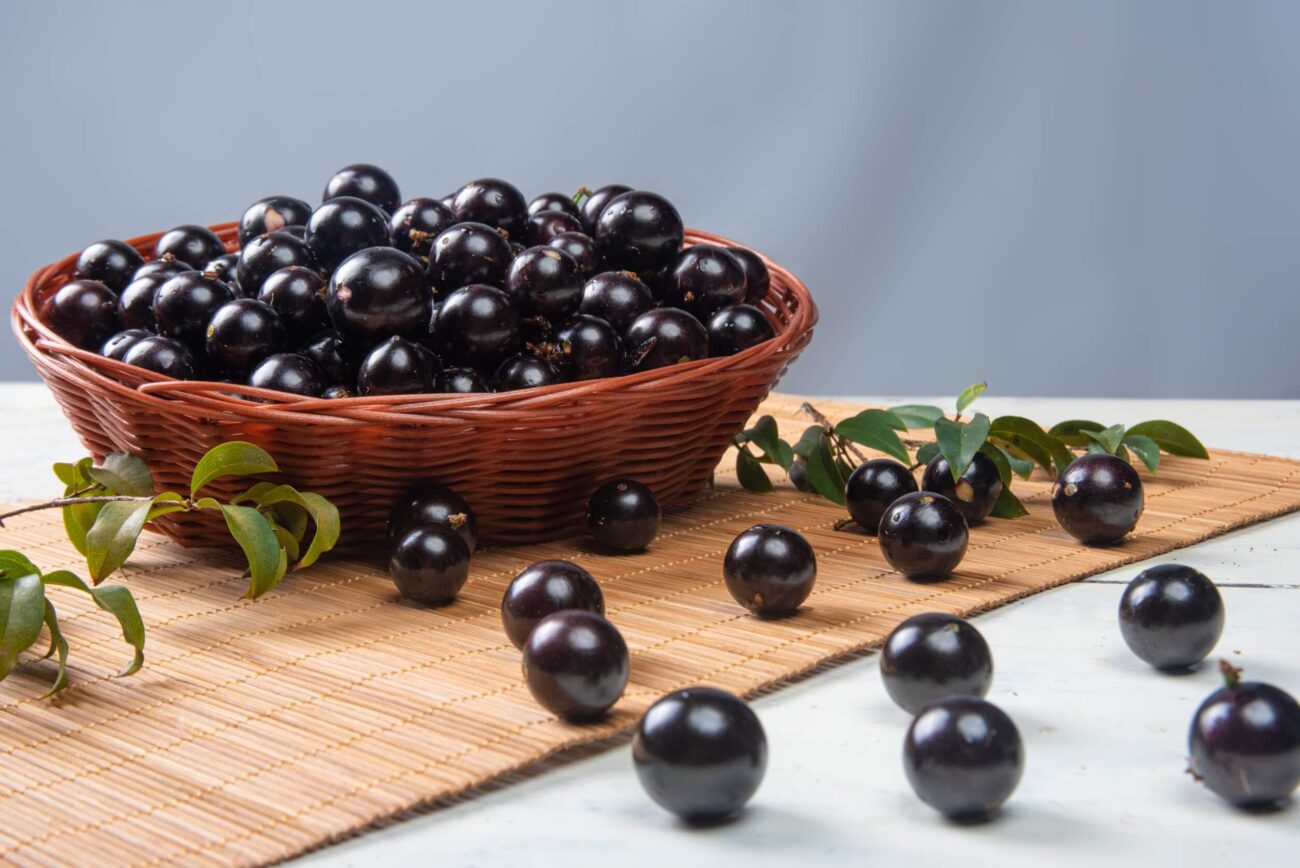If you’ve ever visited Brazil, you may have come across a unique tree with small, dark-purple fruits growing directly on its trunk. This exotic fruit is called jabuticaba (Plinia cauliflora), often referred to as the “Brazilian grape tree.” Beyond its unusual appearance, jabuticaba is prized for its sweet, tangy taste and impressive nutritional profile.
Let’s explore its health benefits, properties, and potential contraindications.
What Is Jabuticaba?
Jabuticaba is native to Brazil and related regions of South America. Its fruits resemble grapes in size and texture but are distinctive because they sprout directly on the bark of the tree. The fruit has a thick, purple skin and a soft, whitish pulp with one to four seeds inside. Traditionally, it’s eaten fresh, but it’s also used in juices, jellies, wines, and liqueurs.
Nutritional Properties of Jabuticaba
Jabuticaba is rich in bioactive compounds that make it both nutritious and medicinal.
Key properties include:
- Antioxidants: Especially anthocyanins, which give the fruit its deep purple color.
- Vitamins: Rich in vitamin C and some B vitamins.
- Minerals: Contains calcium, phosphorus, potassium, iron, and magnesium.
- Dietary fiber: Supports digestion and gut health.
- Low calories: A light, refreshing fruit suitable for weight management.
Health Benefits of Jabuticaba
- Rich in Antioxidants
The high anthocyanin content helps neutralize free radicals, reducing oxidative stress and supporting healthy aging. - Supports Digestive Health
Its fiber content aids digestion, helps regulate bowel movements, and supports a balanced gut microbiome. - Boosts Immunity
Vitamin C strengthens the immune system, helping the body resist infections. - Anti-Inflammatory Effects
Compounds in jabuticaba may reduce inflammation, which is linked to chronic diseases such as diabetes and cardiovascular conditions. - Improves Skin Health
Antioxidants and vitamin C contribute to collagen production, potentially improving skin elasticity and reducing signs of aging. - Supports Heart Health
Potassium helps regulate blood pressure, while anthocyanins may promote better circulation and protect blood vessels. - May Help with Blood Sugar Control
Preliminary research suggests that jabuticaba extracts could aid in regulating glucose levels, though more studies are needed.
Contraindications and Possible Risks
While jabuticaba is generally safe, there are a few considerations to keep in mind:
- Digestive issues: Eating the thick skin in excess may cause bloating or constipation due to its tannin content.
- Allergic reactions: Rare, but individuals allergic to similar fruits should exercise caution.
- High consumption: Overeating jabuticaba may lead to stomach discomfort or diarrhea.
- Alcoholic products: Jabuticaba wines and liqueurs should be consumed in moderation, with the usual precautions related to alcohol.

Jabuticaba is not only a cultural treasure of Brazil but also a nutrient-packed fruit with significant health benefits. From antioxidants to digestive support, it offers a wide range of protective properties. However, like any food, moderation is key, and individuals with digestive sensitivities should be cautious about consuming large amounts of the skin.
If you ever get the chance to try jabuticaba fresh from the tree, it’s a truly unique experience—both for the taste and for the boost it can give to your health.

